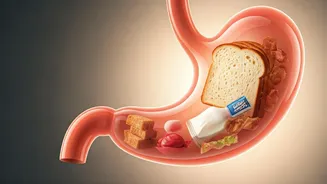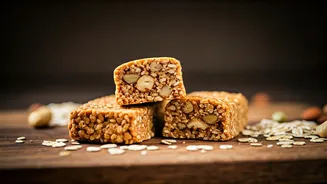Sugary Sweeteners
Sugar, in its various forms, stands as a prominent culprit behind blood sugar spikes. Table sugar, also known as sucrose, quickly breaks down into glucose
and fructose, causing a rapid rise in blood sugar. High-fructose corn syrup (HFCS), often found in processed foods and beverages, similarly leads to a swift increase. Even natural sweeteners like honey and maple syrup, though offering some nutrients, still contain significant amounts of sugar and can affect blood sugar levels. Artificial sweeteners, while calorie-free, may also indirectly impact blood sugar control through various metabolic pathways. It is essential to be mindful of added sugars in everyday foods and beverages to maintain stable blood sugar levels.
Refined Grains Beware
Refined grains, stripped of their fiber and nutrients, are quickly converted into glucose in the body, leading to blood sugar spikes. White bread, white rice, and many breakfast cereals are prime examples. The lack of fiber means these grains are digested rapidly, causing a sharp increase in blood sugar. Whole grains, on the other hand, contain fiber, which slows down digestion and the absorption of glucose, promoting more stable blood sugar levels. Opting for whole-grain alternatives, such as whole-wheat bread and brown rice, can significantly mitigate the impact of carbohydrates on blood sugar.
Starchy Vegetables Impact
Certain starchy vegetables, like potatoes and corn, are rich in carbohydrates and can cause blood sugar levels to rise. Potatoes, particularly when mashed or fried, are rapidly converted into glucose. Corn also contains a significant amount of starch. It is essential to monitor portion sizes and consider how these foods are prepared, as this impacts their effect on blood sugar. Preparing these vegetables with minimal added fats can help. Combining them with protein and healthy fats can help slow down glucose absorption, preventing drastic spikes. Choosing lower-carb vegetables like leafy greens and broccoli can also help maintain blood sugar levels.
Processed Foods' Dilemma
Processed foods are often packed with hidden sugars, unhealthy fats, and refined carbohydrates that can drastically raise blood sugar. Items like packaged snacks, ready-made meals, and sugary beverages frequently contain added sugars, such as high-fructose corn syrup, that contribute to blood sugar spikes. Processed foods may also have a high glycemic load, meaning they release glucose rapidly into the bloodstream. Reading food labels carefully to identify added sugars and choosing whole, unprocessed foods can help minimize the impact of processed foods on blood sugar management. Being conscious of ingredients and making informed choices are vital steps in maintaining stable blood sugar levels.
Sweetened Beverages Caution
Sugary drinks are notorious for their high sugar content and their ability to cause rapid blood sugar increases. Sodas, fruit juices, sweetened teas, and sports drinks often contain large amounts of added sugars, such as sucrose or high-fructose corn syrup. These beverages provide very little nutritional value and lead to quick spikes in blood sugar. Choosing water, unsweetened tea, or beverages sweetened with natural alternatives is a healthy strategy. Be mindful of portion sizes of fruit juices as they can also contribute to excessive sugar intake. Avoiding sugary drinks is essential for blood sugar control.
Hidden Trans Fats
While not directly impacting blood sugar, trans fats, often found in processed foods, can affect insulin sensitivity and indirectly worsen blood sugar control. Trans fats may interfere with the body's ability to use insulin effectively, making it difficult for glucose to enter cells, which can lead to elevated blood sugar levels. They are commonly found in fried foods, baked goods, and some processed snacks. Choosing foods low in trans fats and prioritizing healthy fats like those found in avocados, nuts, and olive oil can help improve insulin sensitivity. Reading food labels to check for partially hydrogenated oils is essential to limit trans fat intake and maintain overall metabolic health.



















